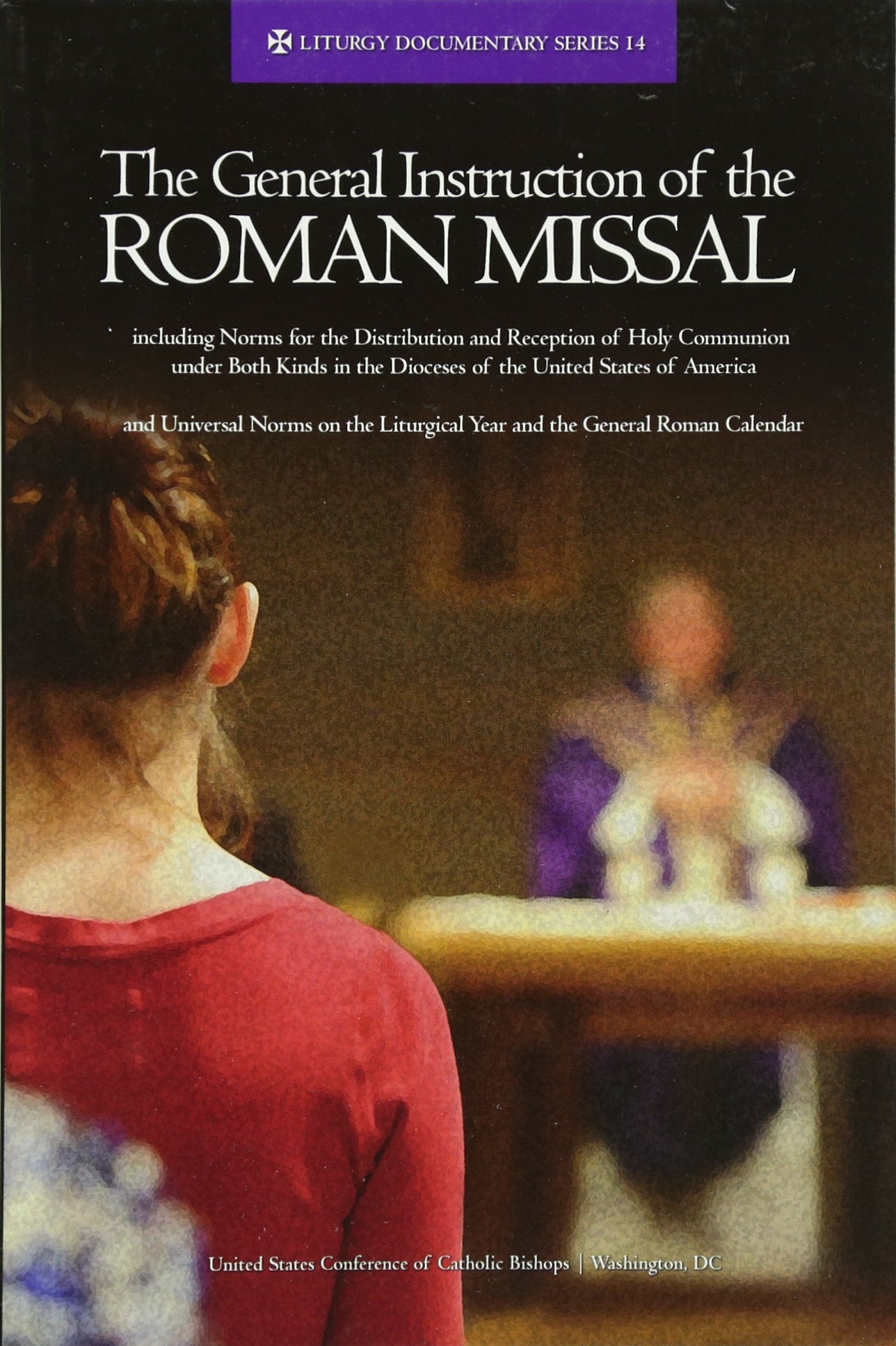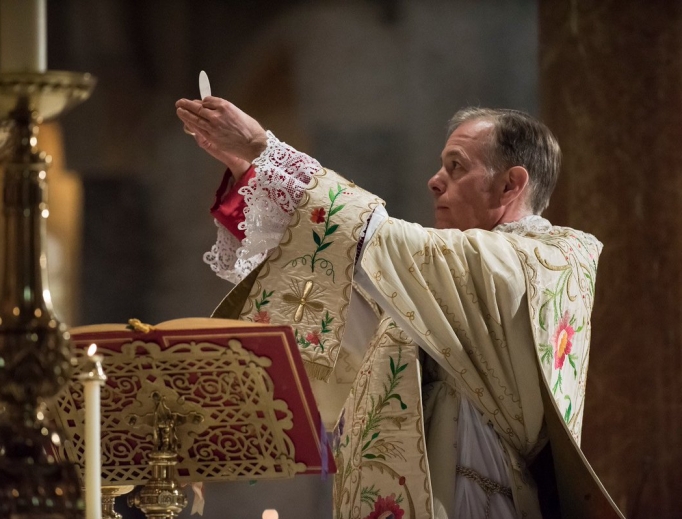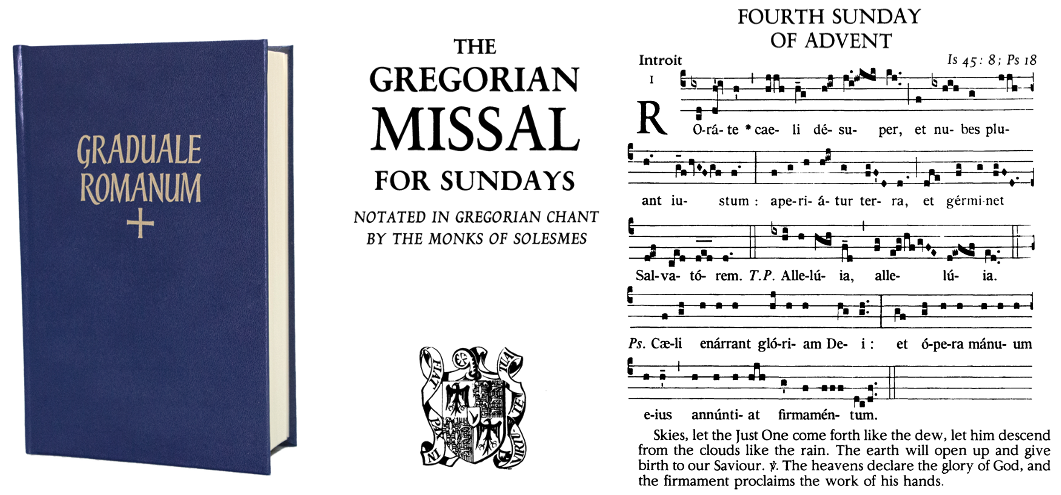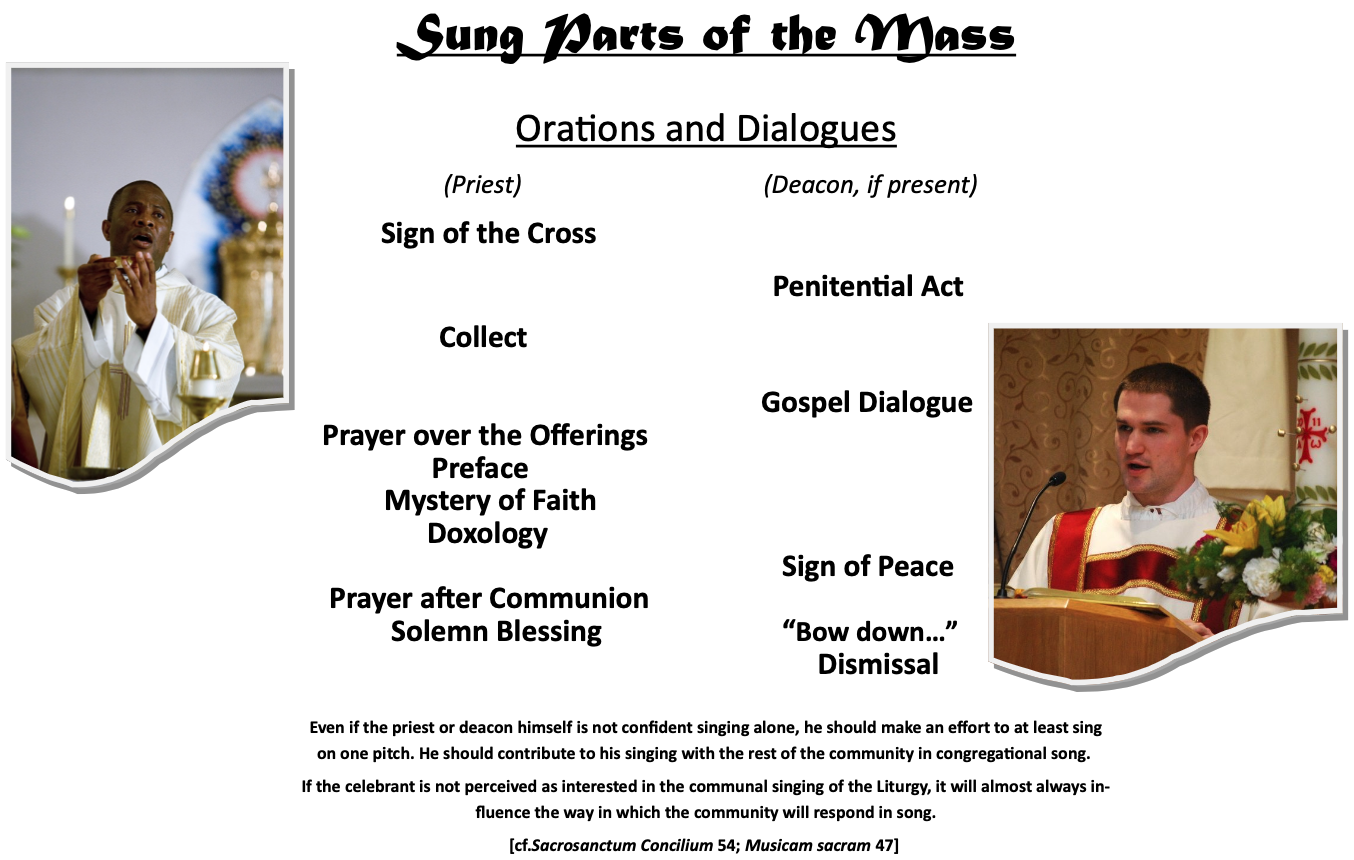What to Sing and When?
A Hierarchy of the Sung Liturgy
Musicam Sacram, 1967, highlights the importance of singing in the sacred liturgy and provides useful instruction for prioritizing the parts of the Mass that should be sung.
Additionally, Musicam Sacram specifically retains the distinctions between Solemn, Sung, and Read Mass (No. 28), and that Sung Mass is to be preferred on Sundays and Solemnities, even more than once on the same day. (No. 27)
Furthermore, Musicam Sacram categorizes three levels of the Sung Mass, so that if a priest is not yet capable of singing the entire Mass, he may at least have in place the first degree for greater participation.
The second and third degrees, it states, should not be sung without the first. (No. 28)
The three degrees of music and their order of preference place as of highest importance those sung parts of the priest that are in dialogue with the people and integral to the Mass.
The first degree: the Sung Acclamations
The dialogue of the priest, the deacon, and the faithful is among the most important musical parts of the Mass. The Order of the Mass is the fundamental and primary song of the liturgy. It forms the part of the Mass that is of the greatest importance, and therefore it should be sung ideally before any of the other parts of the Mass are sung.
The Presidential Prayers (Collect, Prayer over the Gifts, Post-Communion Prayer)
Dialogues: “The Lord be with you” / “And with your spirit”, at many times, particularly the Gospel Acclamations
Preface and Dialogue, and its response, the Sanctus
Our Father and its Embolism
Sign of Peace
Blessing and Dismissal
The second degree: the Mass Ordinary
While the Sanctus was included in the first degree of musical participation, the second degree includes the other portions of the Ordinary of the Mass, the parts whose text does not change.
The Ordinary of the Mass consists of two penitential litanies (the Kyrie and the Agnus Dei), two hymns of praise (the Gloria and the Sanctus), and the Church’s great profession of faith (the Credo), which are fixed within the Order of the Mass and, depending on the demands of the liturgy or season, form a part of the unchanging structure of the Mass. The singing of these principally belongs to the congregation, although the choir may also sing an ornate chant or polyphonic setting on occasion.
While the Kyrie, Gloria, Credo, Sanctus, and Agnus Dei may be sung to a variety of musical settings, the Church’s great sacred music tradition has handed down to us an inestimable treasure of chants for the Mass Ordinary.
The recent English edition of the Roman Missal itself has given us a “standard” musical setting of the Ordinary in the form of simple English and Latin chants, including musical settings of the Creed. While the Ordinary of the Mass may be sung in the vernacular, the Second Vatican Council said that “steps should be taken so that the faithful may also be able to say or to sing together in Latin those parts of the Ordinary of the Mass which pertain to them” (Sacrosanctum Concilium 54).
In addition to those parts of the Ordinary of the Mass, the second degree specified in Musicam sacram also includes one part of the Mass whose text can change, the Prayer of the Faithful.
Kyrie
Gloria
Creed
Agnus Dei
General Intercessions
The Kyriale Romanum is the “people’s songbook” or collection of chants for the Mass Ordinary. It contains 18 settings of the Ordinary of the Mass, the Requiem Mass, tones for the readings, Te Deum, and other chants.
The Kyriale is available as a PDF Download, or in softcover ($12) and hardcover ($25) here.
The third degree: Mass Propers
The third degree essentially consists of the parts traditionally ascribed to the choir, the Proper of the Mass. The texts of the Proper chants change according to the liturgical calendar, and therefore are “proper” to particular liturgical celebrations. They are, with few exceptions, scriptural antiphons, with verses from psalms or canticles, which form perhaps one of the most immense and deeply rich treasure troves in the sacred music tradition.
Many parishes want to begin with this, but the Church has been clear that these should not be sung without the first and second degrees, namely the Clergy Acclamations and the Congregation’s participation in the Ordinary. The third degree:
Entrance Antiphon (Introit)
Gradual / Responsorial Psalm
Alleluia, Tract, Sequence
Offertory
Communion chant
Does your parish own one?
Graduale Romanum: 1974 edition
Gregorian Missal (Sundays and solemnities only): 2012 edition
The General Instruction of the Roman Missal (para. 48) gives a clear hierarchy for Entrance, Offertory and Communion Chants:
- Chant Antiphons from the Graduale Romanum/Gregorian Missal or Roman Missal
- Chant Antiphons from the Graduale Simplex
- Psalmody
- Another suitable or seasonal chant
What about hymns?
Hymns belong to the Liturgy of the Hours. The 1970 GIRM had an inaccurate translation of the word cantus (1970: “song”; 2011: “chant”).
Devotional hymns are loosely included within #4 above, albeit they have only been in use a very short time. The Low Mass practice has only been in the U.S. from approximately 1930s to the present.
One must keep in mind that devotional hymns should not replace the scriptural prayers intended for use: that is, the proper prayers for each and every Mass: “Rorate, Laetare, and Gaudete” Sundays and the “Requiem” are in fact named for the first word of the Introit and Mass prayers!

In conclusion
With a better understanding of these three levels, we see a continuation of what earlier generations held in high esteem as qualities of sacred music: that it forms an integral part of the Holy Liturgy, in its ability to be holy, beautiful, and universal. Gregorian chant receiving first place, sacred polyphony second, and devotional music a distant third. Singing God-centered Sacred Scripture with appropriate, flowing rhythms, stepwise melodies and beautiful harmonies are the keys to being faithful.
We also see the value in each Pauline gift: everyone has a role as clergy, congregation, or choir. The liturgy functions much better with each fulfilling their prayer in tandem with another, rather than an overpowering cantor in a microphone, or a celebrant who quickly rattles off the spoken prayer, intended to be sung. As St. Augustine reminds us, “singing belongs to the one who loves.”
Sunday liturgies should be sung, for truly the Roman liturgy is a sung liturgy. Sunday is our time to give our best to our Lord!

“The renewal and the reform of the sacred liturgy is absolutely key and essential to the work of the new evangelization.”
Most Rev. Alexander King Sample, Archbishop of Portland, Sacred Music Colloquium at the Cathedral of the Madeleine, Salt Lake City, June 2013









